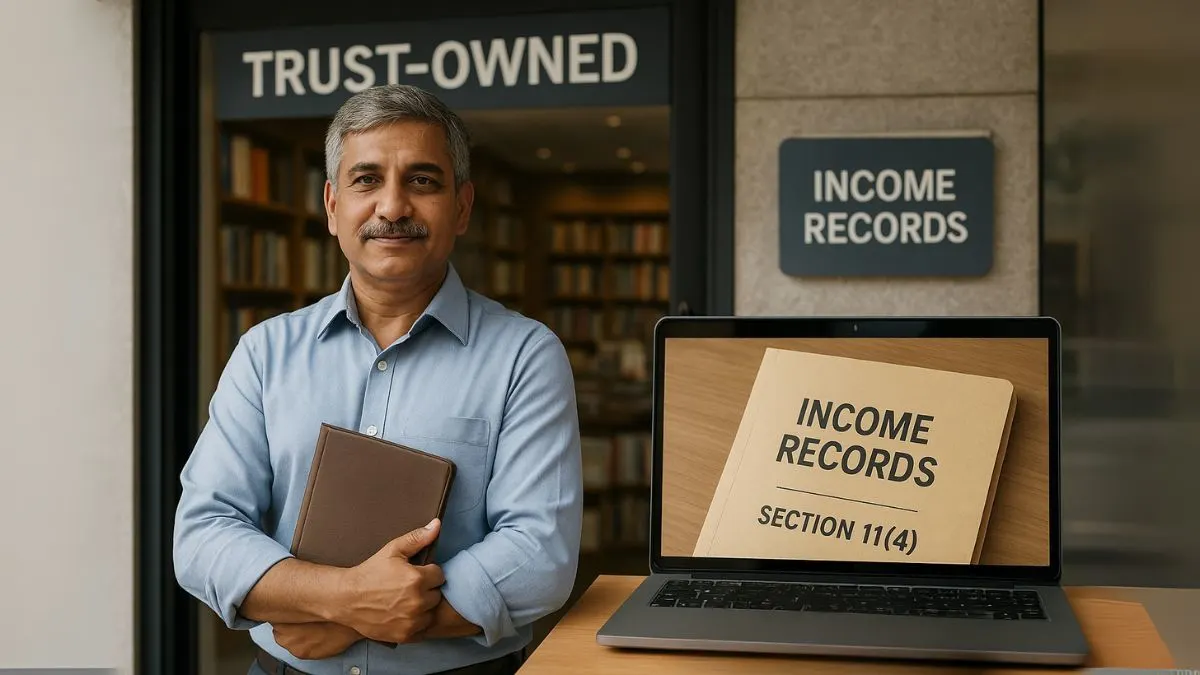
While charitable & religious trusts in India enjoy generous tax exemptions under Section 11 of the Income Tax Act, 1961, things change when these institutions venture into business activities.
That’s where Section 11(4) comes into play—a critical provision that ensures business undertakings owned by charitable trusts are not used to bypass tax laws under the guise of charity. This lesser-known clause is not just a technicality—it can decide whether your trust’s income stays exempt or gets taxed.
Let’s break this down in simple terms.
What Is Section 11(4) of the Income Tax Act?
Section 11(4) states that the "property held under trust shall include a business undertaking." In other words, if a trust owns a business that is used to fulfil its charitable objectives, that business is considered a part of the trust's property.
But here’s the twist — such business income doesn’t get automatic exemption.
Instead, the law introduces a control mechanism. The Assessing Officer shall have the power to determine the income of such undertaking under the provisions of the Income Tax Act. If the income determined by the AO is higher than what’s shown in the books of the trust, the excess will not be exempt & may be taxable."
Why Was This Clause Introduced?
This provision was added to prevent misuse. Many trusts had commercial ventures running under the guise of charitable purposes. Section 11(4) ensures that income from genuine business activities held under trust is fairly assessed, without compromising the integrity of charitable intentions.
Key Components of Section 11(4)
- Property Held Under Trust Shall Include a Business Undertaking:
This means trusts can run a business, but that business becomes part of the trust’s assets & is subject to scrutiny. - Assessing Officer's Power to Determine Income:
If the trust under-reports business income, the Assessing Officer (AO) can determine the actual income as per general tax rules & deny the exemption on the excess. - No Automatic Exemption for Business Profits:
Unlike donation-based income or passive income like interest & rent, direct business income of a charitable institution has limited exemption under this section. - Applicability Even If Entire Income Is Applied for Charitable Purposes:
Even if the business income is entirely used for charitable purposes, only the income as per the AO’s calculation will be considered for exemption. - Income Shall Not Be Accumulated for More Than 5 Years:
Like other provisions of Section 11, even income under Section 11(4) must either be applied or accumulated within 5 years. Beyond that, it loses exemption eligibility."
Example to Illustrate
Let’s say a charitable trust runs a printing press to generate funds for its educational initiatives. It shows ₹10 lakh profit in its books. However, the Assessing Officer finds that the actual business income is ₹15 lakh based on market rates & records.
In this case:
- ₹10 lakh is eligible for exemption (if applied to charitable objects).
- The remaining ₹5 lakh is taxable under normal provisions.
How Is It Different from Section 11(4A)?
While Section 11(4) deals with business undertakings owned by the trust, it talks about business carried on by the trust, not held as property. Section 11(4A) imposes stricter conditions, such as maintaining separate books & proving that the business is incidental to the charitable objective.
So, Section 11(4) is slightly more lenient — but only if the business is part of the trust’s core assets.
Why This Section Matters for Charitable Institutions?
Understanding this clause is essential for:
- Charitable trusts with commercial arms, like hospitals, schools, skill training units, etc.
- CA professionals advising NGO clients.
- Trustees managing tax compliance.
Improper reporting of business income can attract tax scrutiny & even cancellation of the exemption under Section 12AA.
Final Thoughts
Section 11(4) strikes a balance between allowing charitable trusts to engage in business for fundraising & preventing them from misusing tax exemptions. The core takeaway is — business income under a trust isn’t automatically exempt. It must be transparent, fairly valued, & ideally, applied for genuine charitable purposes within 5 years.
💡 Running a charitable trust or thinking of starting one? Our experts at Callmyca.com can help you stay fully compliant with tax laws while maximising your exemption benefits. Book a free consultation today to safeguard your cause & your finances!











